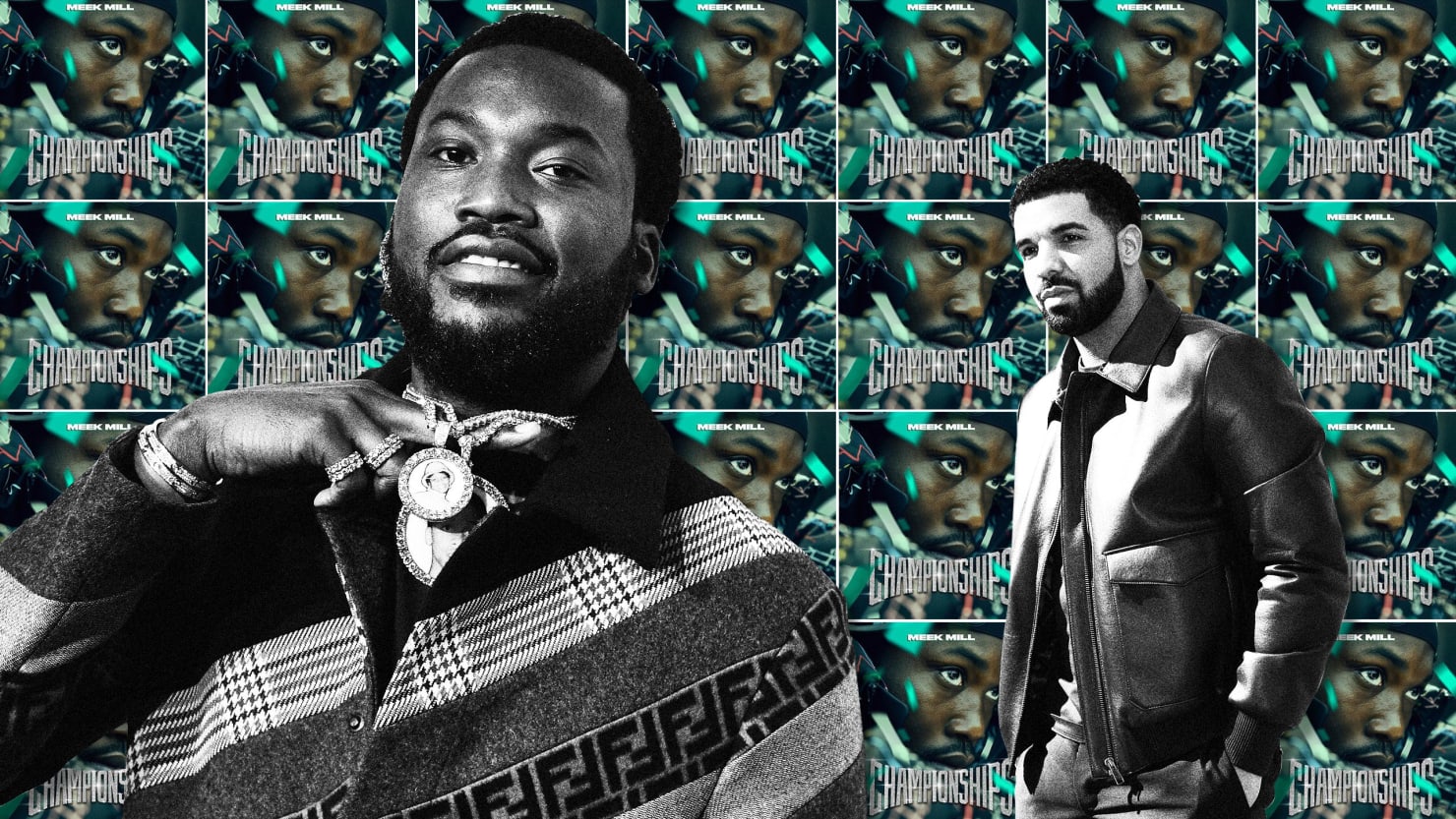How Meek Mill’s ‘Championships’ Erases Kanye West’s Trump Support and the LGBTQ Struggle

“My mama used to pray that she'd see me in Yale / It’s fucked up she gotta see me in jail / On the visit with Lil Papi, it hurt even though I seemed to be well / They got a smoker with a key to my cell, damn…”
In November 2017, rapper Meek Mill (born Robert Rihmeek Williams) was sentenced to 2-4 years in prison for violating his probation from a 2008 gun and drug case. A year later, Meek has released his first full-length project since his release from state prison back in April, and Championships finds the star musing on the system, his imprisonment, and post-Black Lives Matter America. The album reveals the depths of despair and anger Meek felt throughout the past year; but it also illuminates how the singular pain of Black men can sometimes blind us to the wider struggle within our community.
Meek Mill’s real-life drama understandably looms large on Championships. His incarceration and battle for freedom made international headlines, with everyone from Philadelphia 76ers legend Dr. J to New England Patriots owner Robert Kraft throwing their support behind the 31-year-old hip-hop star.
Hip-hop hasn’t been “Black people’s CNN” in a while—at least not the most mainstream incarnations of the billion-dollar industry. But it has remained a powerful platform for expression and commentary, and Championships more than carries that tradition. Meek has always been at his best when at his most introspective, and there’s no shortage of it on his latest. But, on the Don Cannon-produced “Trauma,” when Meek raps, “Watching a Black woman take my freedom / Almost made me hate my people…” the line is acidic both for the rapper’s candor and for how much it says about internalized contempt. Even as he criticizes what he sees as self-hate in Judge Genece Brinkley, he seems oblivious to how his contempt for her made him “almost” hate his own as opposed to fortifying his contempt for the white-supremacist system in which she operates as a cog.
When Rick Ross alludes to rapper Tekashi 6ix9ine’s pending case and warns, “Purple hair got them f*ggots on your back” on the Biggie-referencing “What’s Free?”, the line serves as a reminder that rap-game homophobia can still be par for the course even on a song that seems to question the idea of freedom against oppression. It’s another example of how rappers’ vision for “progress” doesn’t include uprooting certain kinds of hate.
Drake makes a much-talked-about appearance on Championships, on the track “Going Bad,” their first collaboration since 2015. Their reconciliation has taken place publicly over the past few months, with Drake bringing out his former rival at a show in Boston back in early September during Drake and Migos’ Aubrey and the Three Migos Tour.
But Drake’s presence on Meek’s project was almost immediately overshadowed by a Jay-Z guest verse, that media outlets quickly pounced on as evidence of more mud-slinging between Jay and his former buddy, Kanye West.
Comments
Post a Comment